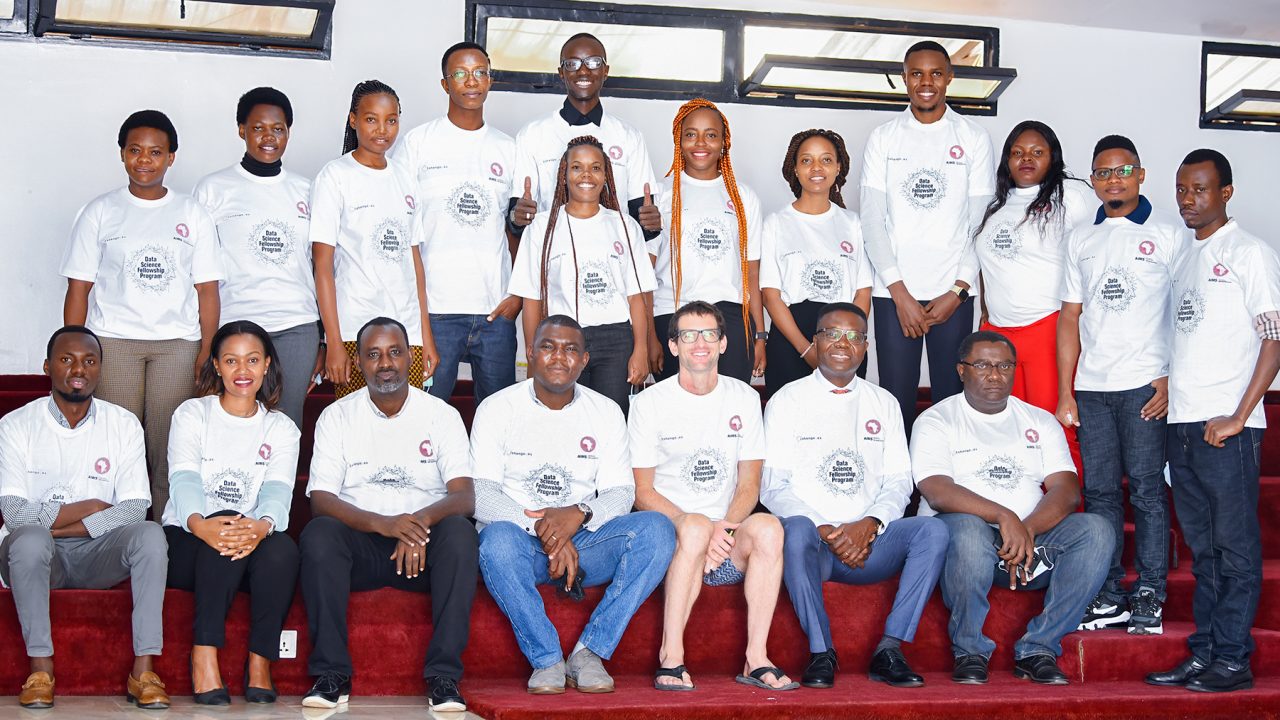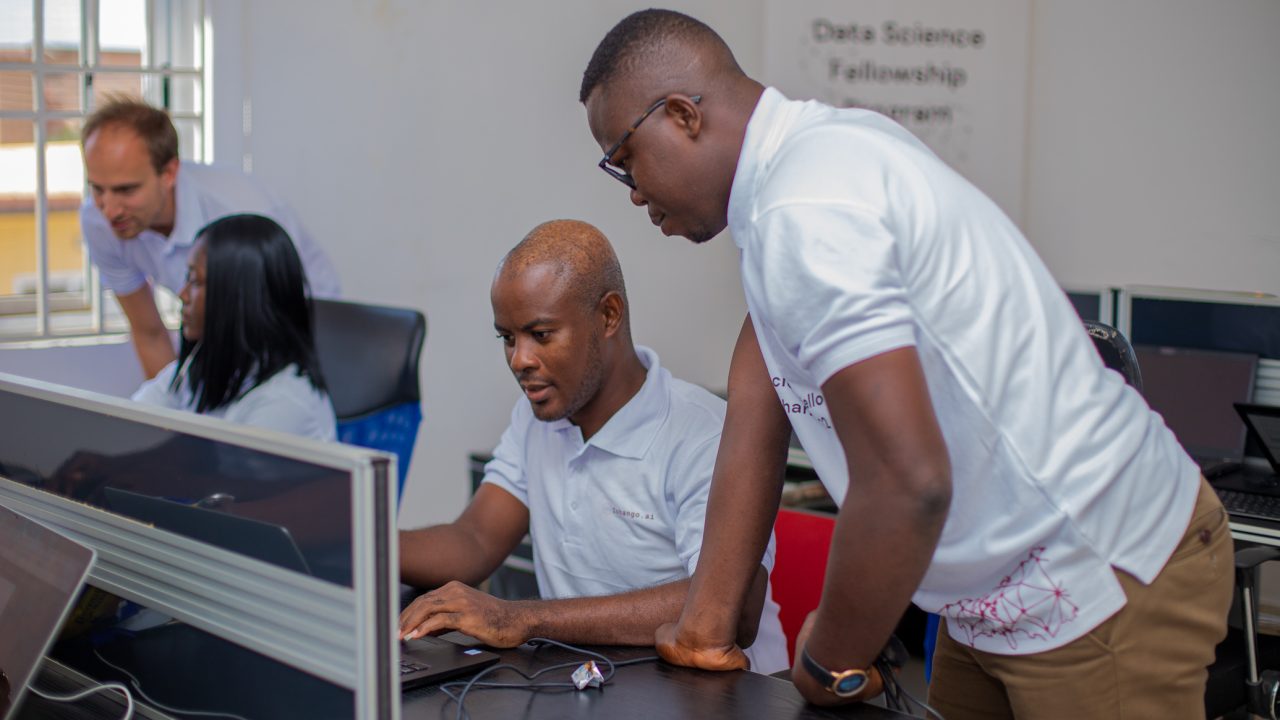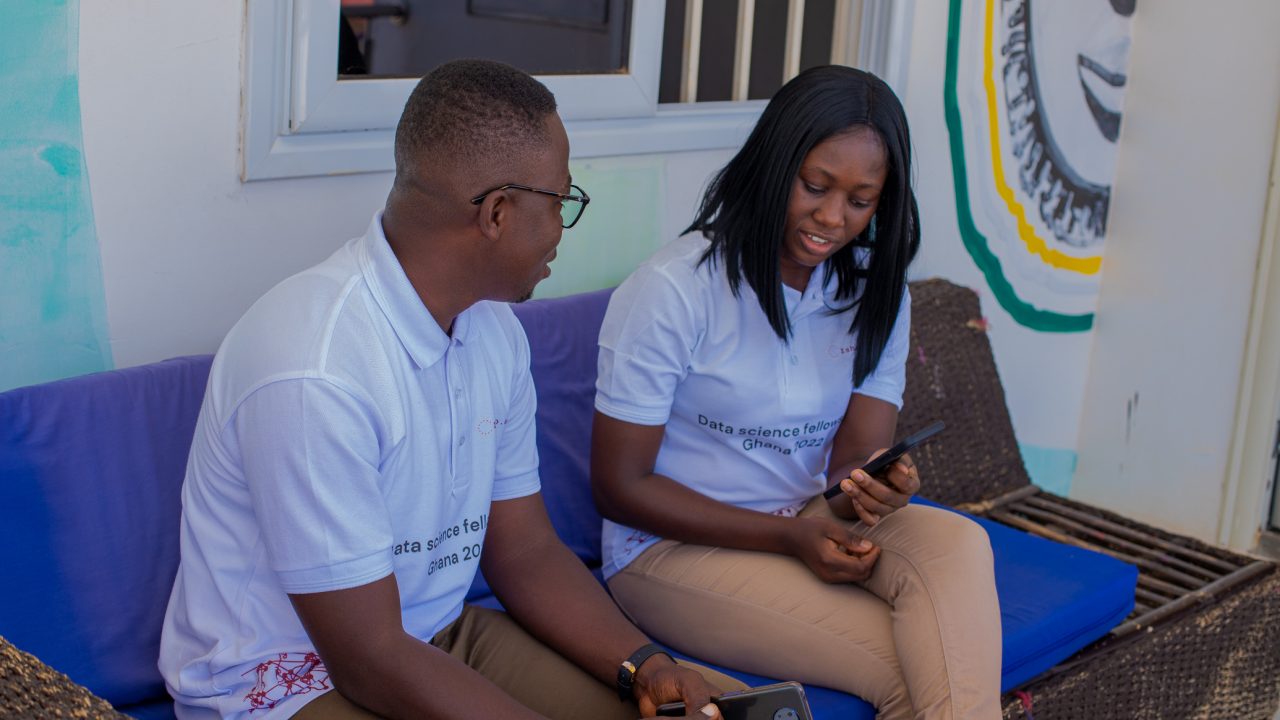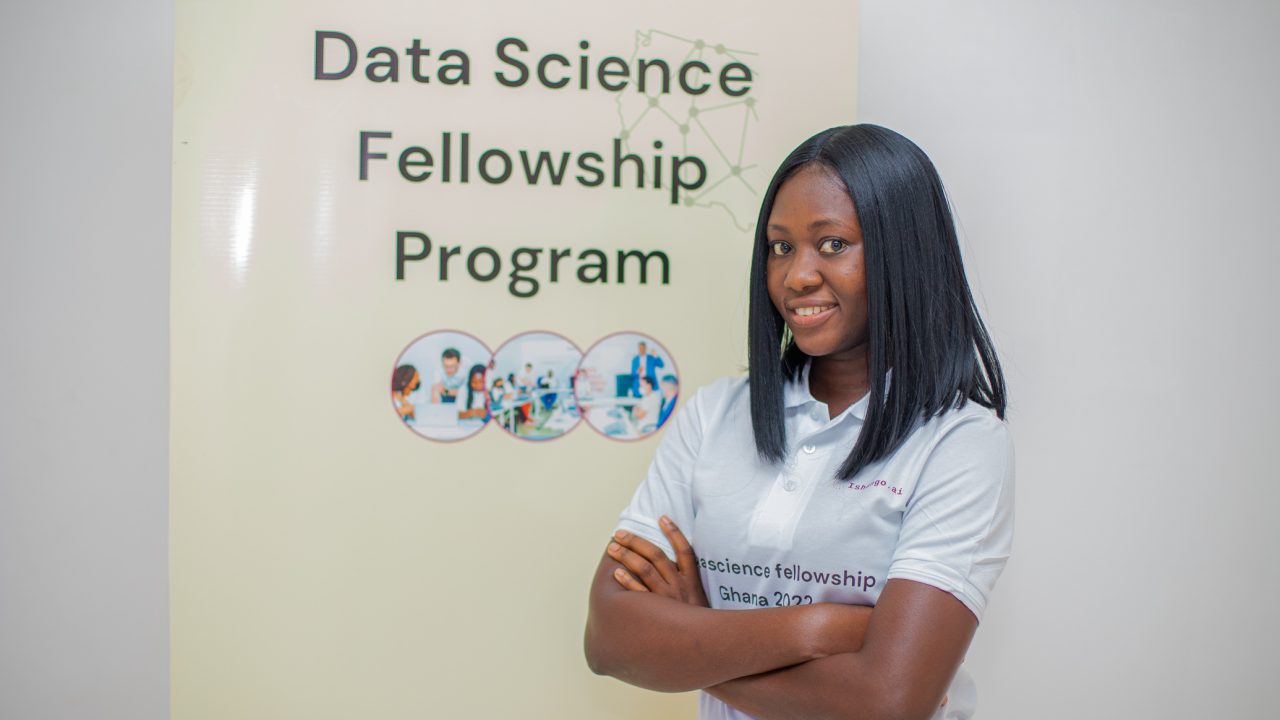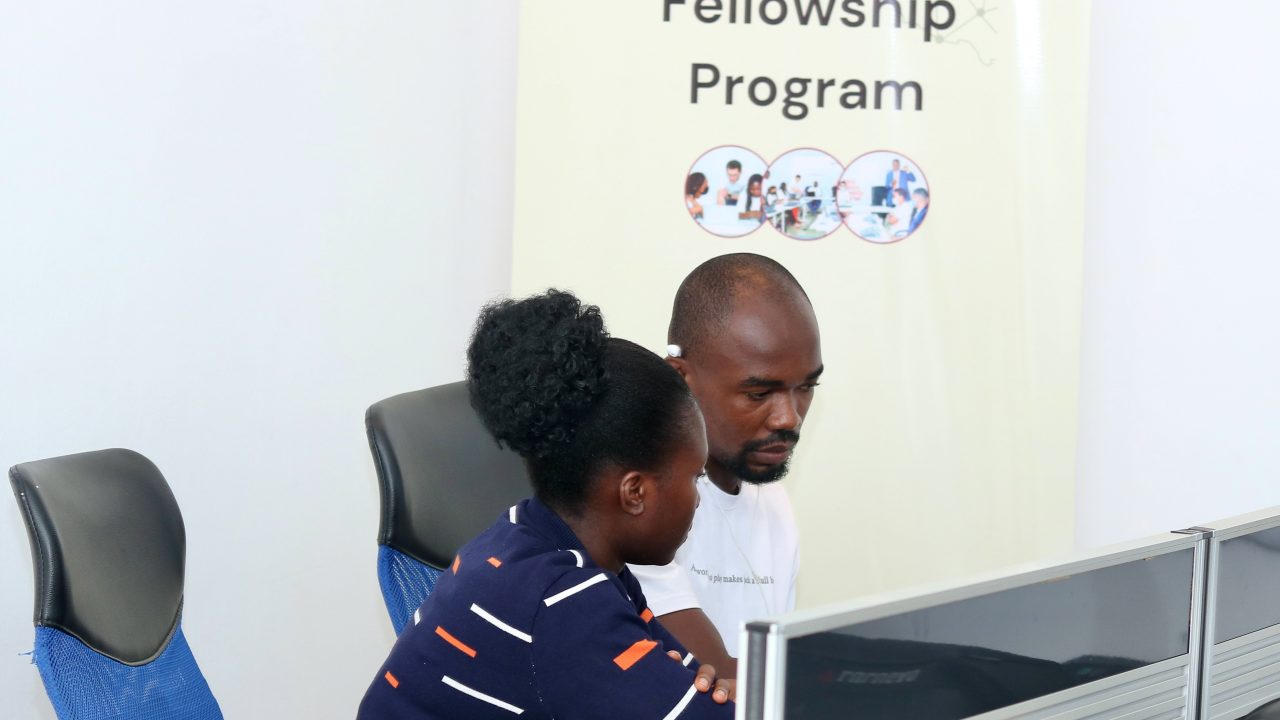The World Bank estimates that Africa loses about 20,000 highly skilled professionals annually, with over 70 percent of African professionals working outside their home countries. In turn, Africa is deprived of the knowledge and expertise needed for sustainable development.
Ishango.ai bridges the gap between the demand for data skills and the availability of a robust workforce by leveraging the power of remote work, enabling international companies to tap into the talent pool in Africa without contributing to what’s referred to as the “brain drain” on the continent.
The Challenge
In 2020, as the COVID-19 pandemic raged, Eunice Baguma Ball and Naveed Ratansi talked about silver linings. Amid so much fear, uncertainty, and sadness, were there any bright spots? New opportunities? Ways to accelerate progress in the face of such immense challenges?
Eunice had worked in the African tech ecosystem for over 12 years while Naveed had founded multiple education companies and had extensive commercial experience. Fascinated with the growth of remote working, they speculated how it could change work in Africa, which was experiencing significant emigration of highly skilled professionals to other countries, seeking better opportunities and improved living conditions.
And that’s when it hit them. What if they could create jobs, foster local skills development, and reverse the brain drain in Africa by leveraging the new boom in remote work?
Data science is not just a career; it's a tool for making a social impact. It allows us to bring together all of our skills, knowledge, and experiences to solve real-world problems.
Ethel Elikem Mensah Data Scientist Ishango.ai
“We see it firsthand all the time,” said Eunice Baguma Ball, Ishango.ai Co-Founder and Head of Operations. “Many of our friends have attained amazing degrees and qualifications but struggle to find opportunities, and the reality is that there are not enough jobs to accommodate the 10–12 million individuals entering the workforce each year.”
Eunice and fellow Inshango.ai co-founders Naveed Ratansi and Oliver Angelil understood that one of the answers to bridging this gap could be remote working. With so many companies already working in a distributed manner around the globe, they set out to create incentives for professionals to stay and contribute to their home countries’ growth while meeting the needs of a high-demand market: data and technology.
“We knew we could not only be leaders in this new space but that we could make an impact on so many young people who were committed to their communities but were faced with economic hardship if they stayed. It was a really exciting time,” said Ball.
The Solution
Ishango.ai offers global companies the ability to access an untapped talent pool: African data scientists and data engineers. And those data scientists and engineers are put through a robust development program that includes a stipend, mentors from global institutions, and soft-skills training to take their careers to the next level.
“We knew we were going to face two significant challenges,” shared Ball. First, the company would need to change the narrative that outsourcing any degree of data talent must be pulled from countries outside of Africa. “We had to not only convince prospective clients that they could find high-skilled data talent as a service but also that the talent could come from Africa.”
Second, said Ball, was ensuring that the talent they were offering was not only highly skilled technically but that individuals had key soft skills, such as communication, critical thinking, and cross-team management and collaboration — all crucial when working with multicultural and virtual teams.
“How do you convince an Australian company that they can work with two data scientists in Ghana and that it will not only be cost-effective, it will actually result in greater outcomes?” said Courage Seyram Wemegah, Ishango.ai Program Manager. “When we first started out, we would show them the rigorous process of how we find and develop our talent. Now we use case studies with data to illustrate how well our model works.”
Ishango.ai recruits candidates through application open calls on its website and social media. Candidates are invited to take a coding assessment test and complete an interview with a senior team member. Successful candidates are then trained, matched with a company, and assigned a team and a senior data scientist as a mentor.
“Developing strong data scientist professionals extends beyond technical prowess,” said Wemegah. “Ishango.ai is looking for a combination of technical expertise alongside the ability to learn and adapt to different working environments. Our ongoing mentorship and training program smooths out any challenges around cultural fluency, soft skills, and most importantly, communication.”
Within the first eight weeks, the program prepares each participant to provide a presentation about their projects and key learnings for the company they’re working for. After this presentation, they could be offered a long-term contract.
Ethel Elikem Mensah, a participant in a recent Data Science Program cohort, said the training went far beyond soft and hard skills. “I developed a profound understanding of the impact data science can have in transforming businesses and driving social change,” she noted. “It transformed my career and my perspective on the power of data science.”
Developing data scientists as true professionals extends beyond technical prowess. Ishango.ai is looking for a combination of technical expertise alongside the ability to learn and adapt to different working environments.
Courage Seyram Wemegah Program Manager Ishango.ai
The Takeaway
Today, Ishango.ai data scientists have delivered projects across sectors such as finance, e-commerce, healthcare, agriculture, and industrial engineering for companies from around the world, including the US, Australia, Switzerland, and the UK.
“The data science program allows international companies to see the high return on investment that working with African data talent provides,” said Ball, “and many of them end up extending their contract. In fact, the project that Ethel is working on now is from 2021.”
Looking ahead, Ishango.ai is expanding its marketing, outreach, and education to find more companies and industries that align with its mission — fueling the demand for talented data scientists in Africa while making a meaningful impact on global social issues.
They are also focusing on how to scale the employment and development of data scientists on the African continent.
“One of our initial concerns was what happened to the other 700 applicants who didn’t make it into our development program,” mentioned Ball, reflecting on the large number of individuals who were not accepted.
To address this gap, they have actively sought partnerships with online platforms like Dataquest and DataCamp to provide these candidates with scholarships to online skill-building programs and allow them to take part in the Ishango.ai community through webinars and events. In particular, they have prioritized scholarships for female data scientists to close the gender gaps in the field.
“For those who weren’t accepted initially, it simply means they’re not quite ready yet,” said Ball. “We want to serve as a conduit within the ecosystem, building capacity in numerous ways and our hope is that in a year or two, they may return even more remarkable.”
Ishango.ai is also partnering with African education institutions to support their graduates with job-readiness skills and strengthen the data talent pipeline on the continent. For example, in 2021 they partnered with African Institute for Mathematical Sciences (AIMS), which hosted the Ishango.ai Data Science program at their campus in Kigali, Rwanda.
In the long term, Ishango.ai wants to expand its model beyond data science to provide access to African talent across industries. By leveraging local talent and expertise, they hope to unlock valuable insights and solutions that align with the Sustainable Development Goals (SDGs) and contribute to the betterment of communities in Africa while supporting knowledge transfer and economic mobility.
“Ishango.ai is helping to prove that data science is not just a career; it’s a tool for making a social impact,” said Mensah. “It allows us to bring together all of our skills, knowledge, and experiences to solve real-world problems. The ability to leverage data for positive change is both empowering and fulfilling, and I am grateful to be part of a field — and organization — that has the potential to make a difference in the world.”
